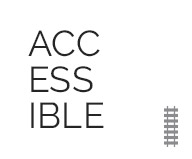Imlpementation
GENERAL
In line with Article 125 (4) (b) of the regulation (EU) 1303/2013 beneficiaries must maintain either a separate accounting system or an adequate accounting code for all transactions relating to an operation.
Reference to the Manuals
Eligibility Manual 3.1
The eligibility period for the expenditure within the project starts in general with the start of implementation. The start date of the project cannot be earlier than the date of submission of the application form.
Before the project start date only the costs related to the preparation period are eligible, i.e. 5000€ lump sum, or in some cases real costs related to infrastructure projects.
Please note that the legal basis (order) and the performance must fall within the implementation period (between project start and end dates as registered in the application form), except for the real cost based preparation expenditure of infrastructure projects, where the legal basis (order) must be dated at the beginning of the work package preparation at the earliest.
Reference to the Manuals
Application Manual 1.3, Eligibility Manual 3.5 and 3.6
The period of eligibility must end with 31th December 2022 the latest.
On project level the eligibility period ends 2 months after the project end date as registered in the application form. This means, after the closure of implementation there are 2 additional months for the service providers to issue invoices, and for the beneficiary to pay them, as well as to settle staff cost payments. Until the end of the additional 2 months all payments must be concluded.
If there is strong justification that without an extension of the project duration it would not be possible to achieve the project specific objectives or the main outputs, a request for prolongation can be submitted at least 1 month (but preferably 2-3 months) before the project end date. Such a prolongation request needs an approval of the MA.
Neither the end date for the project implementation nor the eligibility period (including the additional 2 month for settling payments) can be prolonged after the 31 December 2022.
Reference to the Manuals
Application Manual 1.3, Eligibility Manual 3.5, Implementation Manual 4.6.3
In accordance with the provision of Article 71 of Regulation (EU) No 1303/2013, the supported project involving investment in infrastructure or productive investment may not undergo significant changes over a period of five years after the final payment to the beneficiary which significantly affect the nature or content of the project. The Managing Authority must be notified without delay about any substantial change in the nature, objectives or implementation conditions (for example, transfer to another legal entity, cessation of operations). Although the beneficiaries should in general pursue the best possible durability of project results, this specific requirement is only valid for projects involving investment in infrastructure or productive investment.
On top of that, project results may not be sold or misappropriated within a period of five years from the final payment to the beneficiary.
Reference to the Manuals
ERDF contract §17, Art. 71 of Regulation 1303/2013/EU
REPORTING
The duration of the reporting period is decided by the partnership and laid down already in the application form, but at least once a year the reporting obligation must be met, however, the programme does not recommended to set up more than three reporting periods per year.
Reference to the Manuals
Application Manual 2.5.3
Even if the partner did not have expenditure in a certain reporting period, the content part of the partner report must be filled in logically.
Although it is possible that some partners do not report expenditure in a certain reporting period, we assume that also during that time they actively participate in the work of the partnership. Related invoices can be issued and paid at a later point in time. It is also possible that some activities can be implemented free of charge, or at the cost of other partners. If, for some reason the partner did not have activities at all in a certain period, a meaningful justification shall be provided. In all such cases, independent if the partner report is a so called "zero report", its content has to be filled in, and verified by the FLC.
It is also to be noted that while the FLC certifies the expenditure of the partners, they should also control the implementation of the project part that is in the responsibility of the respective partner.
The content part of the partner report is also an important source of information for the LP to compile the project report.
Reference to the Manuals
Implementation Manual 3.3.1
The budget category “travel and accommodation” refers to expenditure on travel and accommodation costs of staff of partner organisations. If the PP offers travel arrangements to the project's target group, is should be budgeted in the external expertise and services budget line. In these cases usually a travel service provider should be selected in accordance with the cost category specific eligibility requirements (incl. proof of market price according to the relevant thresholds). The reimbursement of travel tickets or mileage for individual participants by the project partner is not possible.
Reference to the Manuals
Eligibility Manual 5.3.1
The expenditure occurred in the project should be usually reported for the period when it has occurred. However, if for any reason this has not happened, it can be included in the report of a later period as well.
Similar is when an expenditure is not verified by the FLC (e.g. due to formally missing documentation) and put on hold. Such invoices are not "lost" for the project. If later the partner can provide clarification to the FLC, that piece of expenditure can be verified together with expenditures of a subsequent report.
Reference to the Manuals
Implementation Manual 3.3.10
REPORTING / CERTIFICATION
The bodies designated to carry out control tasks (First Level Control - FLC) are
in Austria
- Burgenland: Regionalmanagement Burgenland
- Niederösterreich: Amt der NÖ Landesregierung
- Steiermark: Amt der Stmk Landesregierung
- Wien: Stadt Wien, MA 27
in Hungary
- Széchenyi Programiroda Nonprofit Kft.
The FLC is obliged to check every single activity and invoice for compliance with the eligibility rules and with the approved content of the AF.
If the FLC considers that the concrete practical implementation of an activity does not have a project relevance, it may not certify the related expenditure.
On the other hand it is also possible, that an activity which is not explicitly mentioned in the application form is needed to achieve some of the project targets, or it has clear added value for those targets. In that case the FLC can verify the related expenditure in its own circle of responsibility (assuming that other eligibility conditions such as documentation, sufficiently available funding, etc. are available).
The project partners see in the report overview when the report has been certified by the FLC, they also see corrections and the amount certified in the list of expenditures. The certificate as printed/scanned/uploaded document is currently not available with user rights of a PP. From the perspective of the programme it is not necessary, as the LP can include certificates into the project reports independent of that.
REPORTING / DOCUMENTATION
In order to ensure proper repayment according to the relevant contract on advance payment, Hungarian beneficiaries have to report to the FLC about their ERDF reimbursement using the "Declaration on certified and reimbursed expenditure". The amounts and deadlines for the repayment are defined according to this.
Reference to the Manuals
Guide on reporting for Hungarian beneficiaries
The general requirements for documentation of the audit trail is specific for the cost categories, and differs also e.g. according to the chosen reporting scheme for the staff costs, or according to the value of the procurement. The relevant minimum requirements of the programme can be found in the relevant sections of the Eligibility Manual. Please look for the keywords: "Specifications, reporting and audit trail".
Reference to the Manuals
Eligibility Manual 5.1.3.1, 5.1.4.2, 5.2.3, 5.3.3, 5.4.3, 5.5.3, 5.6.3
Invoices or accounting documents of equivalent probative value should normally bear the following pieces of information:
- Name of the programme
- Project number
- Project acronym
Copies and e-invoices are only acceptable for control if the original invoice includes at least two out of the above three items, otherwise the control must be based on the original invoice and the FLC must void it with a stamp.
The above rules do not exclude invoices (or other accounting documents of equivalent probative value) that don't include the listed items, it only says that in such cases the original invoice has to be submitted to the FLC that will void it with a stamp (electronic invoice or copy is not possible).
With other words, if the electronic invoice (or other accounting documents of equivalent probative value) or the copy includes two of the above three items, it must be accepted by the FLC.
In addition that, obviously national legislation about the requirements related to invoices prevails.
Reference to the Manuals
Eligibility Manual 3.4
If a part of a project is financed by another project (in another programme), a plausible allocation key and (if relevant) a comprehensible calculation method, including a sound justification, must be provided about the shared financing as soon as possible. For large infrastructure projects, this information must already be part of the project proposal. In the case of shared costs on a smaller scale (such as joint events, publications), the appropriate method of calculation should be submitted during reporting with the partner report.
As an attachment to the application, all partners must submit a list of all national and EU funded projects (submitted and approved) that they implement during the project period. In case of changes (new funded project) the list must be updated. For larger organizations, such as universities or public institutions it is sufficient to provide information at the level of the department involved in the project.
Reference to the Manuals
Eligibility Manual 3.2.1
What are the requirements for the documentation of shared financing of costs within the partnership?
In the Austria-Hungary Interreg Programme the project partners must not be contractors to one another in the context of the project. Project partners cannot issue invoice to each other for their expenditure.
Therefore if one partner acts for the other partners and common expenditure occurs in the project (e.g. conference, website, project management, provision of services, products or work, etc.) for deliverables that are also used by other project partners, specific rules have to be applied.
When invoices are shared between partners, they should prepare a written agreement which must be confirmed by the responsible FLC in advance (information goes to the JS), the primary FLC certifies the total value, and partners pay their share to the partner who originally paid the invoice.
The shared implementation of a public procurement procedure by two or more partners must be in line with Art. 38 and 39 of the Directive 2014/24/EU.
Reference to the Manuals
Eligibility Manual 3.2.2
For travel expenditure the following documents must be provided to the controller:
- Authorisation of mission of the employee(s) travelling, bearing information on the destination and the start and end date of the mission;
- Proof of expenditure and of mission (e.g. invoice of travel agent, flight or train ticket, boarding pass);
- Documentation related to the reimbursement of costs borne by the employee either based on daily allowance or on real costs, according to the beneficiary organisation’s internal rules. When claiming on a real cost basis all documents proving the costs occurred must be included (e.g., bus or metro tickets, meal receipts);
- In case of travel by car (either employee’s car or company car), mileage calculation sheet with statement of the distance covered, the cost per unit according to national or institutional rules and total cost;
- Other supporting documents (e.g. invitation, agenda);
- Proof of payment of costs directly paid by the beneficiary and/or proof of reimbursement to the employee (e.g. extract from a reliable accounting system of the beneficiary, bank statement).
With respect to the principle of sound financial management, the most cost-efficient mean of transportation shall be used.
The duration of the mission must be clearly in line with the purpose of it.
Daily allowances must be in line with national and internal rules of the beneficiary, but must not exceed those set at Council Regulation.
Travel and accommodation costs outside the programme region must be either explicitly foreseen in the approved application form or, if not, they have to be previously authorised by the MA/JS.
Travel and accommodation costs of external experts and service providers can be reimbursed only under the external expertise and services cost category.
The reimbursement of daily allowances must be reduced in those cases in which concerned costs have been partially covered by third parties according to the institution’s internal rules.
Reference to the Manuals
Eligibility Manual 5.3.3
In general the beneficiaries are supposed to justify the chosen travel method and route for the business trips. Related travel and accommodation expenditure should be in line with the content of the project. At the same time a reasonable flexibility is expected also from the FLCs. The Programme proposes that the burden with the clarification should be in line with the size of the related expenditure.
The approval of the business trip can be also after the travel, as long as this is acceptable in the project partner organisation.
The programme does not offer general guiding values for economic travel and accommodation expenditure. However, if the project partner organisation concerned has generally valid internal rules on thresholds for accommodation and/or travel costs, or if there are national/regional rules on that, the FLC is supposed to rely on them. Such guiding values can contribute to simplified reporting and control of travel and accommodation expenditure.
No documentation on office and administration expenses is required to be provided to the controller, nor do controllers need to check anything (incl. double financing, or if the amount refers to the principle of economy, efficiency and effectiveness) beyond the calculation of the flat rate based on the direct costs.
Only the certified staff costs are needed in order to calculate the office and administration flat rate.
The cost items listed under the office and administration cost category (5.2.1 a-l) cannot be reimbursed under any other cost category, even if the project partner choses to not make use of the reimbursement of office and administration costs as a flat rate financing.
Reference to the Manuals
Eligibility Manual 5.2.3 and 5.2.1
Travel and accommodation costs for external experts, speakers, chairpersons of meetings and service providers are eligible in the external expertise and services budget line. The coverage of travel costs should be part of the contract or written agreement laying down the services to be provided.
Reference to the Manuals
Eligibility Manual 5.4.1.n (5.3.3.1.g)
External expertise and services are provided by a public or private body or a natural person outside of the beneficiary organisation. The “external expertise and services” category covers costs paid on the basis of contracts or written agreements and against invoices or requests for reimbursement to external experts and service providers sub-contracted to carry out certain tasks or activities directly linked to the implementation of the project.
You can find the list of eligible services under this category and details of the required documentation in the Eligibility Manual.
Reference to the Manuals
Eligibility Manual 5.4
You should estimate the value of your planned procurement to be able tell which procedure is to be applied for the procurement procedure. If e.g. the estimated procurement value is below the national threshold for public procurements, you have to apply the programme rules to prove the market price above 5000€. Above the public procurement threshold the relevant national legislation must be applied. Your estimation of the procurement value must be documented above the national threshold. Although not legally prescribed, it may be good to have the documentation also for values close to this threshold. If you are not sure what to do, you may need to employ a public procurement expert.
In the report where the invoice issued by the public procurement expert is included, the procurement documentation (as the proof of performance) should be attached. In this case the procurement documentation does not have to be submitted again with the invoice related to the delivery of service or equipment.
Below net 5 000 € (excl. VAT) no further documents are required, but the principles of sound financial management must be applied. If shortcomings are detected by the controllers, additional documentation or evidence can be requested (e.g. internet research, market research, best practice evidence based on screenshots or other forms of documentation). Note that procurement must not be split artificially to circumvent the 5 000 € threshold.
Above net 5 000 € (excl. VAT) beneficiaries must perform and document the execution of adequate market searches (e.g. through collecting bids – at least three independent offers requested, using centralised e-procurement services.) In case the best bidder is selected precise award criteria should be provided, otherwise the cheapest bidder must be selected. If a similar service is ordered under the same conditions, the collection of comparative offers may be waived if the market price has been verified once in the past 36 months.
Reference to the Manuals
Eligibility Manual 5.4.3.2.b.a and b.b, 5.5.3.2.b.a and b.b
No, for procurements below 5 000 € (excl. VAT) documentation to prove price adequacy is not always necessary.
Below net 5000 € (excl. VAT) it is not obligatory to provide comparative offers or other documents about price adequacy to the FLC. Especially in case of standard services and equipment in mass production, where there is publicly available information about market prices, the FLC can verify the expenditure without requesting further documentation.
Of course this does not mean that the beneficiary can buy anything for the project at any price if it is below net 5000€. The compliance with the principles of sound financial management means that the price of the service or the equipment must be in line with its value and the generally available market prices. Comparable previous cases in the practice of the FLC or of the beneficiary can be sufficient to verify the expenditure. In case of doubt the FLC can perform itself, or request the beneficiary to provide evidence based on internet research, market research, best practice evidence based on screenshots or other forms of documentation. Below net 5000€ however, this should be rather the exception for doubtful cases than the rule.
Reference to the Manuals
Eligibility Manual 5.4.3.2.b.b, 5.5.3.2.b.b
In case of expenditure below the national threshold but above net 5000 € the beneficiaries must perform and document the execution of adequate market searches. Collecting bids, at least three independent offers is mentioned in the Eligibility Manual as an example. The market price can also be proven e.g. through using centralised e-procurement services. If the beneficiary choses to collect independent alternative offers, normally at least three should be requested. It is, however, acceptable, if less than three offers are received. On markets where the potential circle of bidders is small, also less than three requested offers may be acceptable, however for such cases sufficient justification should be provided.
Reference to the Manuals
Eligibility Manual 5.4.3.2.b.a, 5.5.3.2.b.a
No, it is not necessary.
Reference to the Manuals
Eligibility Manual 3.9.l and 5.4.3.2.b.b
In-house subcontracting is exempt from the applicable public procurement rules in the meaning of Art. 12 of the Directive 2014/24/EU of the European Parliament and of the Council. In these cases
- the contracting authority exercises over the legal person concerned a control which is similar to that which it exercises over its own departments.
- more than 80 % of the activities of the controlled legal person are carried out in the performance of tasks entrusted to it by the controlling contracting authority or by other legal persons controlled by that contracting authority;
- and there is no direct private capital participation in the controlled legal person with the exception of non- controlling and non-blocking forms of private capital participation required by national legislative provisions, in conformity with the Treaties of the EU, which do not exert a decisive influence on the controlled legal person.
Being exempt from the applicable public procurement rules means that in case of in-house subcontracting no procurement procedure or collection of alternative offers have to be performed. However, the in-house subcontractor shall charge only real costs for the services provided, meaning only production costs that have occurred at the subcontractor.
Reference to the Manuals
Eligibility Manual 5.4.3.1.b (footnote 21) and 5.5.3.1.c (footnote 24)
Directive 2014/24/EU
Supporting documents to the partner report must be submitted to the FLC in electronic format independent if they are uploaded to eMS or submitted on electronic data carriers.
For documents that are originally produced electronically, it is preferred that you don't print and scan them, but continue using the electronic version in your reports, or produce pdf out of your document, if necessary. Scanning should be used only for documents where no original electronic version is available. Documents do not necessarily have to be scanned in color, but in any case a scanning resolution should be chosen that provides a good balance between readability and file size.
Reference to the Manuals
Implementation Manual 3.3.5.1.a
For documents that are originally produced electronically, it is preferred that they are not printed and scanned again, but used electronically in the reports, or if necessary, pdf documents should be directly produced out other formats. Scanning should be used only for documents where no original electronic version is available. Documents do not necessarily have to be scanned in color, but in any case a scanning resolution should be chosen that provides a good balance between readability and file size. For large electronic documents it is usually possible to save them in lower quality (e.g. using a lower resolution). Compression (zip, rar) can sometimes also help, although with jpg and pdf formats usually no substantial compression can be achieved.
REPORTING / FINANCING
The implementation of the project can start on the day registered in the application form as the project start date. This date is also fixed in the ERDF contract. The partner reports about the preparation period and the first reporting report (including the financial report and the related invoices) can be submitted to the responsible first level control body after the ERDF contract has been signed by the MA and the LP.
The FLC has 3 months to certify the expenditure reported by the partners, although please note, that most FLCs in the Austria-Hungary Programme suspend the three month deadline for the period of clarifications or submission of formally missing documents (at the Hungarian FLC this procedure is within the three months deadline).
The Lead Partner shall start to prepare the project level report as soon as information about the content of activities and achievements is available. This means the LP does not have to wait until all partner reports are certified, but can start writing the project report when the partner reports are available, or after the end of the period as soon as the necessary information is known. This way in principle the project report can be finalised right after the partner certificates become available. According to the ERDF contract the project reports should be submitted by the LP to the JS 5 months after the end of the period.
The report is processed by the JS and forwarded to the MA and Certifying Authority. The disbursement of funds by the CA shall take at the latest within 90 days from the date of submission of the submitted project report to the JS.
Reference to the Manuals
Implementation Manual 3.2, 3.3.10, 3.4.8
EMS
eMS is a tool for many Interreg programmes but print templates are programme specific, they need to be programmed by the programmes themselves. As both partner and project reports are forwarded electronically to the next phase in processing, the Programme does not consider it to be necessary to provide print templates.
The status of the project and of the reports is always visible in eMS online in the reporting overview.
Since late summer 2019 eMS notification is already functional.
FINANCING
Project holders must pre-finance their activities. The first ERDF payment is transferred to the LP (and by the LP to the partners) after the first project report is confirmed by all relevant programme bodies. The reimbursement of the preparation costs (5000€ lump sum or in some cases real cost for infrastructure projects) is transferred to the LP together with the payment related to the first reporting period. This is typically at least half a year after the end of the first reporting period, or a year after project start (assuming typical 6 month reporting periods).
The Programme does not offer a possibility of advance payment.
Reference to the Manuals
Implementation Manual 3.2
COMMUNICATION
The Communication Manual of the programme includes all relevant requirements.
The minimum requirements for visibility elements are valid for each project but beyond that the beneficiaries can develop their own visual identity. Providing letter and presentation templates by the programme would be too restrictive and it is not considered as necessary. If you use the Interreg project logo on your templates, as offered by the Programme, you can easily fulfil visibility requirements.
Reference to the Manuals
Communication Manual 3 and 4
There are no specific visibility requirements for communication in social media. We advise you to use the Interreg project logo or your own project logo and the EU flag in your title picture.
Reference to the Manuals
Communication Manual 3 and 4
Sometimes the Interreg project logo or the programme logo is combined with other logos (this also applies when using your own project logo). In this case, the EU emblem (flag) - which is part of the Interreg project logo or of the program logo - must not be smaller than the size measured in height or width of the largest logo on the same page or surface.
Reference to the Manuals
Communication Manual 4.3
Project holders are encouraged to provide (at least) short reports about their public events and other achievements on their microsite or on their own homepage.
STAFF COSTS
The programme requirements for the documentation of the audit trail are specific according to the chosen reporting scheme and method for the staff costs. The relevant minimum requirements can be found in the Eligibility Manual.
Due to the different national (and partly regional) rules and procedures, however, the exact form and precise content of the documents of the audit trail can be different by member state and by region. The Download section of the programme webpage includes specific documents for reporting staff costs for Austrian project partners including staff cost reporting sheets and guidelines for all different reporting options and methods. Similarly, a guide and its annexes for reporting are available for Hungarian project partners, including a reporting sheet for staff costs. Please ensure that you always use the most up-to-date version of these documents!
Please consult your FLC what form the documents to be attached to your partner report should take.
Reference to the Manuals
Eligibility Manual 5.1.3.1 + 5.1.3.2.a, 5.1.3.2.b.a, 5.1.3.2.b.b.1, 5.1.3.2.b.b.ii, 5.1.3.2.c, as well as 5.1.5
Data gathered in the time recording system (time sheets) for the hours worked on the project should be clearly linked to the project. Unless serious doubt arises concerning the work of the employee concerned, the programme sees no reason to ask for additional justification of the hours recorded on the time sheet.
Reference to the Manuals
Eligibility Manual 5.1.3.2.b and 5.1.3.2.c
No documentation has to be submitted to the controller if the staff cost is reimbursed on a flat rate basis.
Beneficiaries do not need to document that the expenditure for staff costs has been incurred and paid or that the flat rate corresponds to the reality. Nor do controllers need to check anything (incl. double financing, or if the amount refers to the principle of economy, efficiency and effectiveness) beyond the calculation of the flat rate based on the direct costs.
However, the beneficiary has to submit as part of the application a proof that it has at least one employee, and repeat it in the first report. On request of the responsible controller a repeated proof can be requested later again. The veracity of the document that the beneficiary has employee(s) may be checked by any of the bodies entitled to perform controls and audits.
Reference to the Manuals
Eligibility Manual 5.4.1.2
The following staff expenditures are not eligible:
- Unjustified ad-hoc salary increases or bonuses for project purposes
- benefits in kind
- unpaid voluntary work
- sole proprietor payments
Reference to the Manuals
Eligibility Manual 5.1.3.1, 3.9.n and 3.9.o
The payment reimbursed to the employer by the social insurance (in Hungary) is not eligible, because this expenditure at the end does not occur at the project partner.









